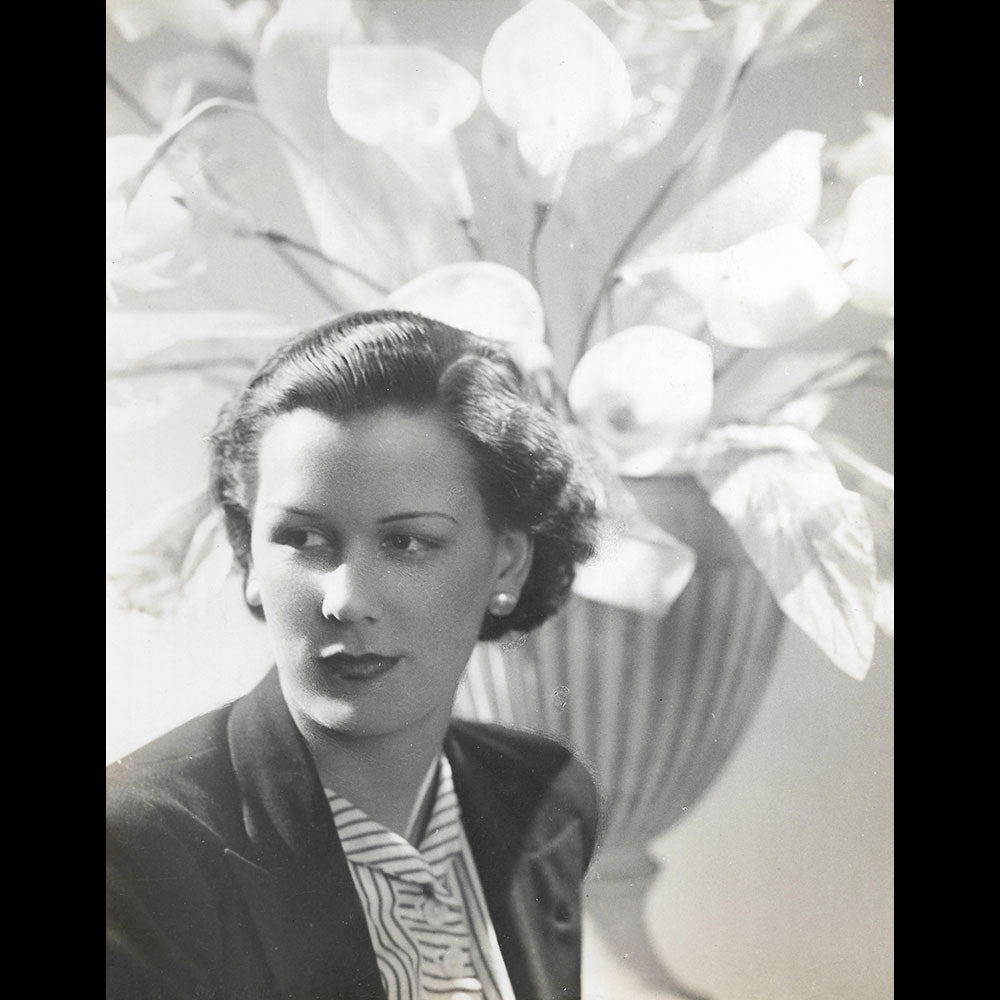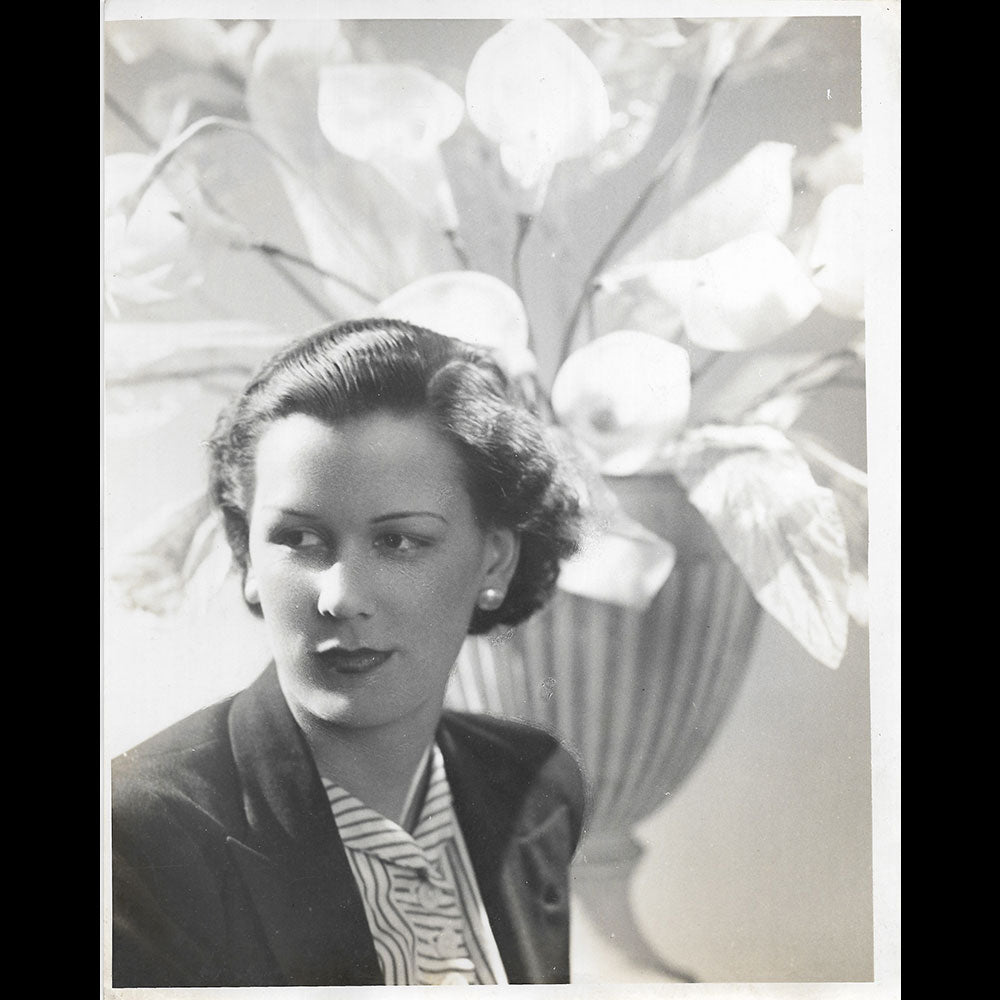

Paul Tanqueray - Portrait de Pamela Colledge (1930s)
Tirage argentique d'époque d'une photographie des années 1930 du célèbre studio photographique londonien Paul Tanqueray représentant une élégante appartenant vraisemblablement à la haute société britannique ou au monde du spectacle. Il s'agit de Pamela Colledge, la fille du Capitaine Colledge qui épouse l'année de la photographie Fred Mayor.
Paul Tanqueray travaille pour Hugh Cecil en 1923 et 1924 avant d'ouvrir son propre studio en 1925. C'est auprès de lui que Cecil Beaton d'un an son aîné cherche à améliorer ses compétences techniques en juillet 1925.
| Type | Photographie |
| Photographe | Tanqueray (Paul) |
| Édition | Londres, Paul Tanqueray |
| Description |
Tirage argentique d'époque. |
| État | Bon état, traces de manipulation. |
| Dimensions | 255 x 200 mm |
Né le 14 janvier 1905, Paul Tanqueray se forme à la photographie auprès du photographe londonien Hugh Cecil en 1923 et 1924 avant d'ouvrir son propre studio en 1925 au 139, High Street dans le quartier de Kensington. Il s'installe en 1930 au 8, Dover Street. Ses photographies sont publiées dans The Sketch, The Tatler ou encore Theatre World. Il ferme son studio en 1937 et en ouvre un nouveau après la guerre 30 dans South Kensington à Thurloe Place. Il prend sa retraite en 1965. La National Portrait Gallery possède les négatifs de son oeuvre. Une exposition consacrée au photographe est organisée par Terence Pepper en 1985 à The Photographers' Gallery et à the Plymouth Arts Center.
Kate Salway dans un article consacré à Paul Tanqueray paru dans le British Journal of Photography décrirt ainsi l'apport de Tanqueray à l'art du portrait alors à son apogée dans les années 1920 : "Tanqueray's main contribution to the art of portrait photography is that of 'sparkle'. He used shiny, reflective backgrounds, crystal and silvery objetcs and sequins and satins in his pictures, which combined with the pearls, jewellery and sometimes shimmering dresses of his predominantly female sitters, gave them an air of iridescence. These bright reflective surfaces were softened in the print by his use of a Portland soft focus lens."
Dans sa biographie consacrée Cecil Beaton, Hugo Vickers parle ainsi des échanges entre Beaton et Tanqueray: "Five days later, on 29 July, Cecil rang up Paul Tanqueray and went to see him at his studio in Kensington High Street. He was shown photographs of Tom Douglas in various stages of retouching. Paul Tanqueray recalled: "in those days Hugh Cecil used a folding camera. The process was called orthochromatic. Blue eyes came out better, hair darker and pink as very black. Both Cecil and I had to re-touch heavily. We were both exponents of glamour. Cecil thought Paul Tanqueray's photos quite excellent just like Hugh Cecil in technique, but thought he would do better to set up more cheaply in a smarter area. Cecil asked a thousand questions without being too inquisitive and positive."
Choisir les options


